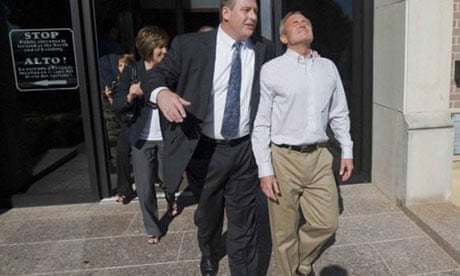The ACLU Foundation of Southern California (ACLU SoCal) filed the lawsuit on behalf of Victor Valley Family Resource Center (VVFRC), a nonprofit in Hesperia that connects individuals who are homeless or at risk of becoming homeless to transitional supportive housing. The suit argues that efforts by Hesperia to shut down three transitional homes are intended to banish residents released on probation.
“The city’s efforts to shutter these homes is little more than an attempt to banish individuals with criminal records from their community,” said Adrienna Wong, a staff attorney with ACLU SoCal. “That’s unacceptable and violates the California Constitution and the 1st & 14th amendments of the U.S. Constitution.”
Currently, the San Bernardino County Probation Department refers individuals released from incarceration who have no place else to go to VVFRC, which provides transitional housing for up to one year, as well as meals, case management services and permanent housing placement.
The lawsuit, filed against the city of Hesperia, San Bernardino County Sheriff John McMahon and other city and sheriff’s officials, argues that several Hesperia municipal codes which were used to target VVFRC violate both the California and U.S. Constitutions. In some cases, Hesperia enforced a code prohibiting residential structures that house more than one individual on probation who are not related by blood or marriage, violating the individual plaintiffs’ right to association. One of VVFRC’s transitional homes was forced to close as a result, and the remaining homes may face the same fate.
The city also violated privacy rights by enacting an ordinance requiring landlords to provide their tenants’ personal information to police in Hesperia for purposes of a background check and registration of tenants in a database administered by the police. Under the same ordinance, the city requires landlords to evict tenants if the chief of police sends a “notice of criminal activity” – even if the tenants are never convicted, charged, or even arrested for any crime.
Hesperia’s efforts to shut down or severely limit the operations of VVFRC are a direct challenge to the state Public Safety Realignment Act (AB 109), the sweeping reform package enacted to ease severe overcrowding in California’s jails and prisons. AB 109 redirects state resources from building more prisons to investing in community-based programs that provide services such as transitional housing, addiction treatment, mental health counseling, job placement and more.
Also named as plaintiffs in the lawsuit are six VVFRC clients who are on probation and have benefitted from these and other services. Without VVFRC, these and other clients would be vulnerable to homelessness, which increases the risk of re-incarceration.
“The city’s stance is not only unlawful but it also undermines public safety by eliminating the kind of re-entry and sober living group homes that provide crucial services to individuals who have no other recourse,” said Belinda Escobosa Helzer, ACLU SoCal general counsel and director of its Dignity for All Project. “Without a safe and supportive environment, they are at great risk of falling into homelessness and returning to criminal activity. Efforts by the city of Hesperia to eliminate this critical resource are ill-considered, unconstitutional and detrimental to public safety.”
Read the complaint
Contact:
Sandra Hernandez 213.977.5247, shernandez@aclusocal.org
Tony Marcano 213.977.5242, tmarcano@aclusocal.org
Via: https://www.aclusocal.org/pr-vvfrc-v-hesperia/










